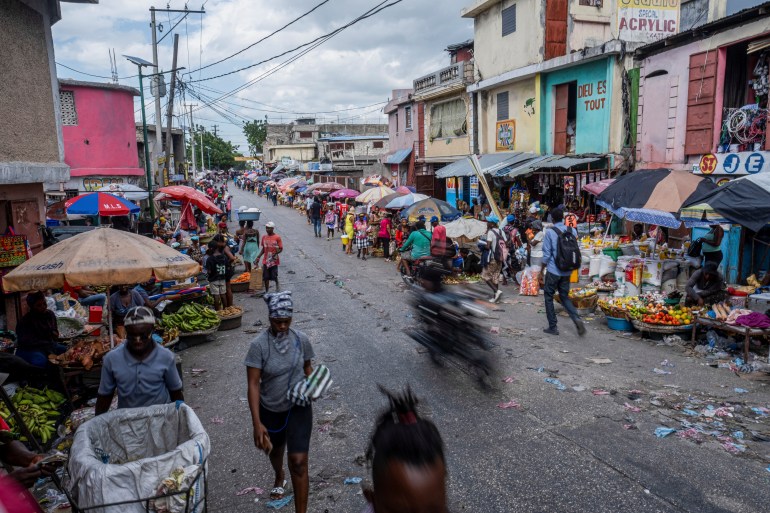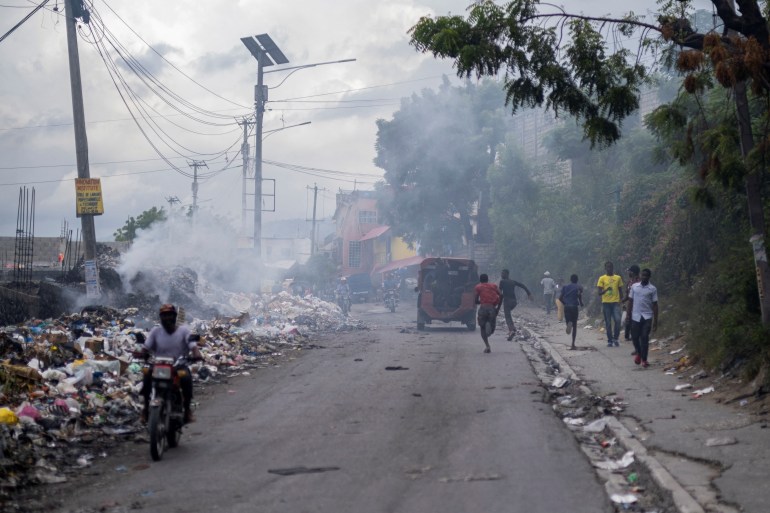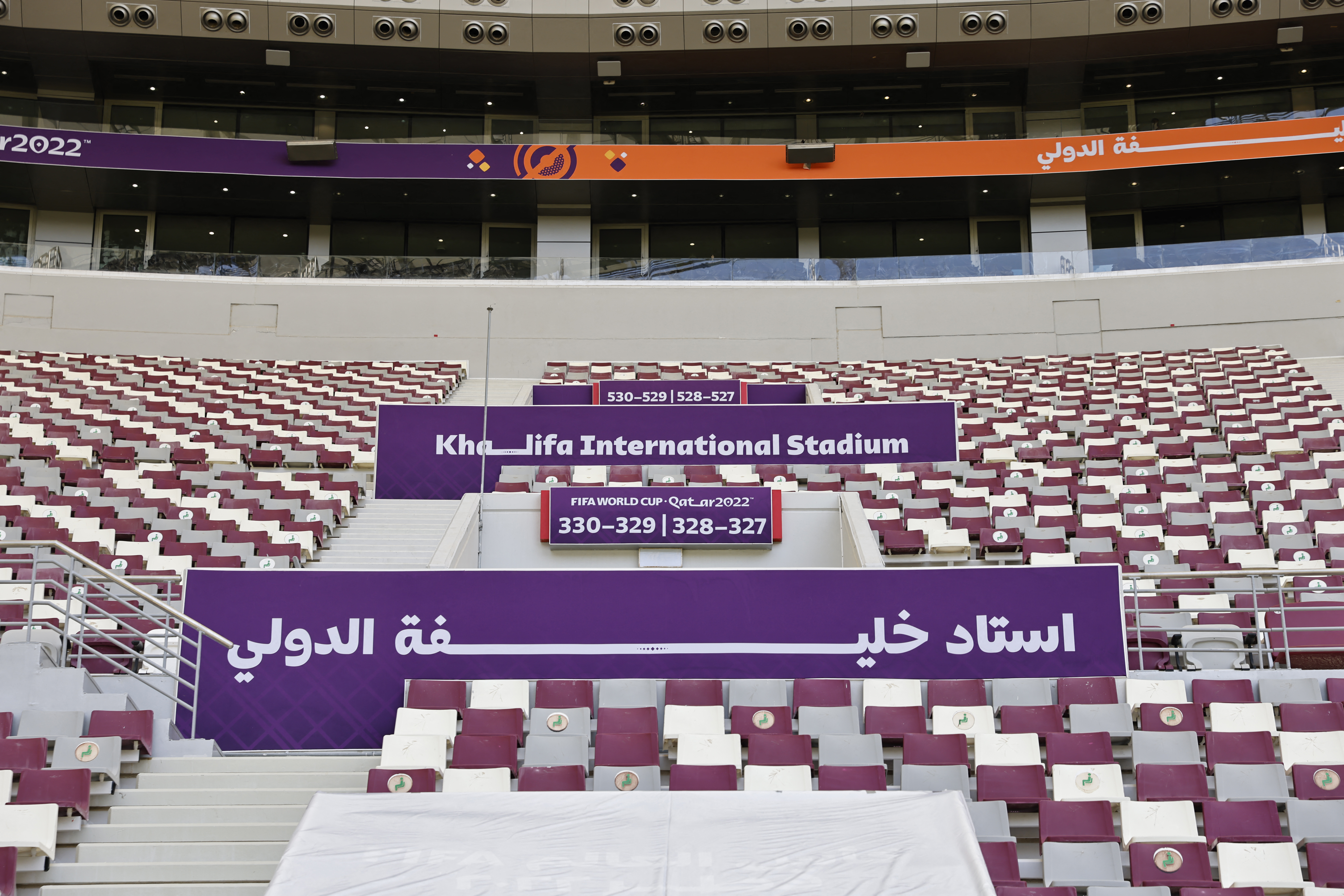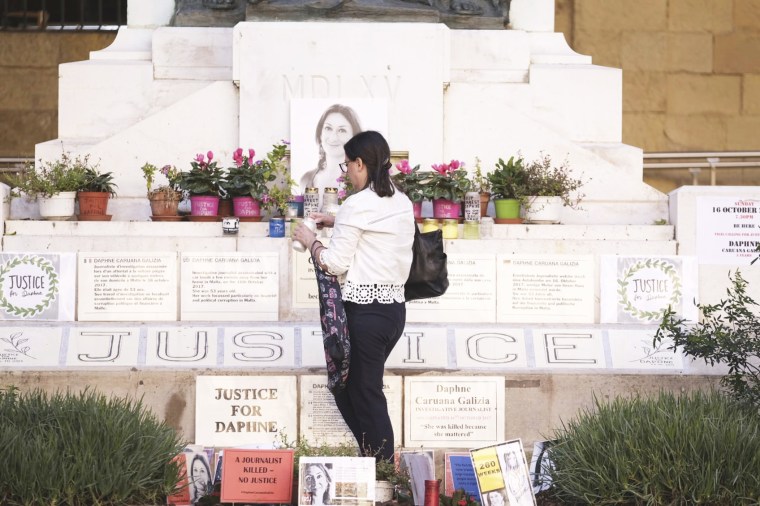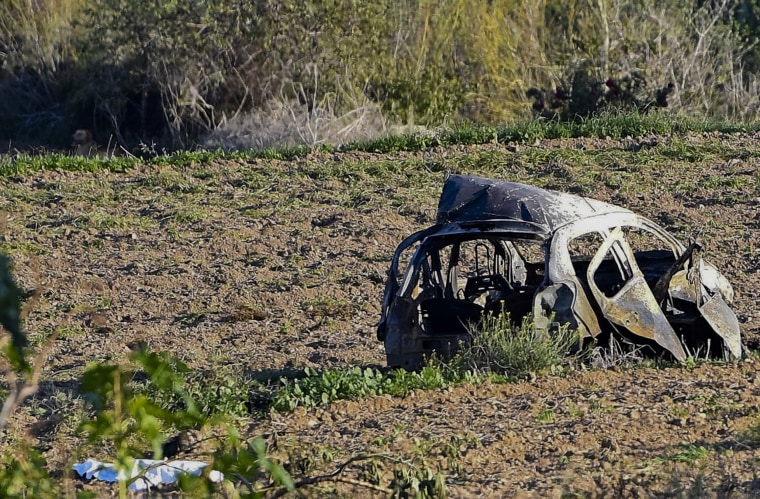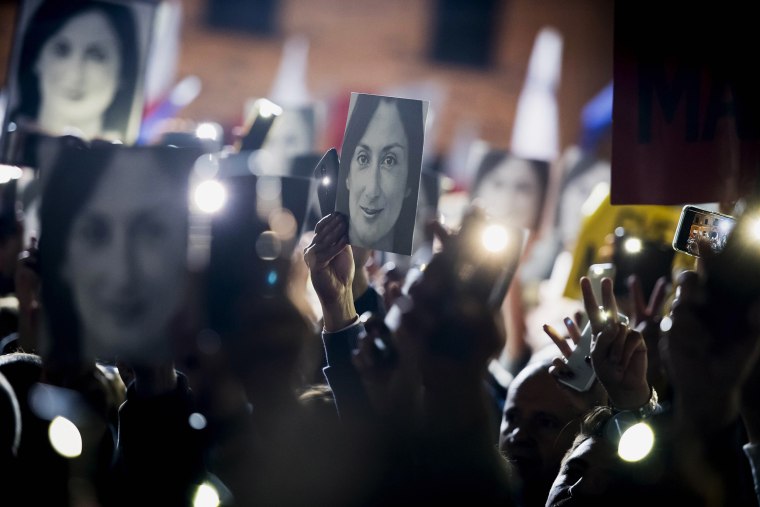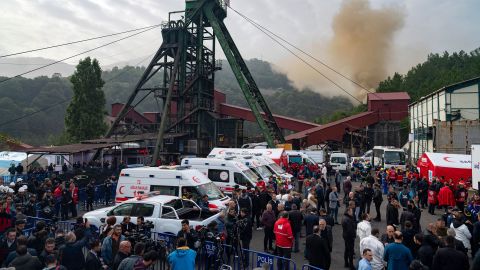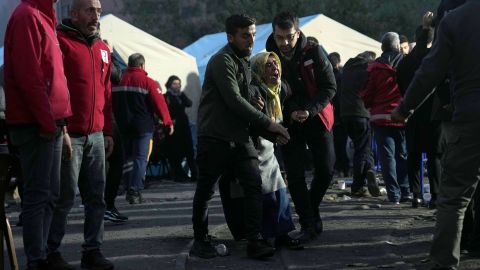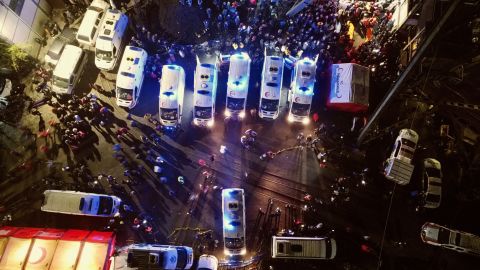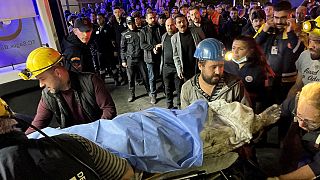
This week marks the 20th anniversary of the U.S. congressional vote to authorize the deadly war on Iraq, which according to some estimates, killed between 800,000 and 1.3 million people. In the exclusive interview for Truthout that follows, Noam Chomsky shares his thoughts on the causes and ramifications of this appalling crime against humanity.
Chomsky is institute professor emeritus in the department of linguistics and philosophy at MIT and laureate professor of linguistics and Agnese Nelms Haury Chair in the Program in Environment and Social Justice at the University of Arizona. One of the world’s most-cited scholars and a public intellectual regarded by millions of people as a national and international treasure, Chomsky has published more than 150 books in linguistics, political and social thought, political economy, media studies, U.S. foreign policy and world affairs. His latest books are The Secrets of Words (with Andrea Moro; MIT Press, 2022); The Withdrawal: Iraq, Libya, Afghanistan, and the Fragility of U.S. Power (with Vijay Prashad; The New Press, 2022); and The Precipice: Neoliberalism, the Pandemic and the Urgent Need for Social Change (with C.J. Polychroniou; Haymarket Books, 2021).
C.J. Polychroniou: Noam, 20 years ago, the U.S. Congress authorized the invasion of Iraq despite massive opposition to such an undertaking. Several leading Democratic senators ended up supporting the war authorization, including Joe Biden. For both historical and future purposes, what were the causes and ramifications of the Iraq war?
Noam Chomsky: There are many kinds of support, ranging from outright to tacit. The latter includes those who regard it as a mistake but no more than that — a “strategic blunder,” as in Obama’s retrospective judgment. There were Nazi generals who opposed Hitler’s major decisions as strategic blunders. We don’t regard them as opponents of Nazi aggression. The same with regard to Russian generals who opposed the invasion of Afghanistan as a mistake, as many did.
If we can ever rise to the level of applying to ourselves the standards we rightly apply to others, then we will recognize that there has been little principled opposition to the Iraq War in high places, including the government and the political class. Much as in the case of the Vietnam War and other major crimes.
There was, of course, strong popular opposition. Characteristic was my own experience at MIT. Students demanded that we suspend classes so that they could participate in the huge public protests before the war was officially launched — something new in the history of imperialism — later meeting in a downtown church to discuss the impending crime and what it portended.
Much the same was true worldwide, so much so that Donald Rumsfeld came out with his famous distinction between Old and New Europe. Old Europe are the traditional democracies, old-fashioned fuddy-duddies who we Americans can disregard because they are mired in boring concepts like international law, sovereign rights, and other outdated nonsense.
New Europe in contrast are the good guys: a few former Russian satellites who tow Washington’s line, and one western democracy, Spain, where Prime Minister Aznar went along with Washington, disregarding close to 100 percent of public opinion. He was rewarded by being invited to join Bush and Blair as they announced the invasion.
The distinction reflects our traditional deep concern for democracy.
It will be interesting to see if Bush and Blair are interviewed on this auspicious occasion. Bush was interviewed on the 20th anniversary of his invasion of Afghanistan, another act of criminal aggression that was overwhelmingly opposed by international opinion contrary to many claims, matters we have discussed before. He was interviewed by the Washington Post — in the Style section, where he was portrayed as a lovable goofy grandpa playing with his grandchildren and showing off his portraits of famous people he had met.
There was an official reason for the U.S.-U.K. invasion of Iraq, the “single question,” as it was called from on high: Will Iraq terminate its nuclear weapons programs?
International inspectors had questioned whether there were such programs and asked for more time to investigate, but were dismissed. The U.S. and its U.K. lackey were aiming for blood. A few months later the “single question” was answered, the wrong way. We may recall the amusing skit that Bush performed, looking under the table, “No not there,” maybe in the closet, etc. All to hilarious laughter, though not in the streets of Baghdad.
The wrong answer required a change of course. It was suddenly discovered that the reason for the invasion was not the “single question,” but rather our fervent wish to bring the blessings of democracy to Iraq. One leading Middle East scholar broke ranks and described what took place, Augustus Richard Norton, who wrote that “As fantasies about Iraq’s weapons of mass destruction were unmasked, the Bush administration increasingly stressed the democratic transformation of Iraq, and scholars jumped on the democratization bandwagon.” As did the loyal media and commentariat, as usual.
They did have some support in Iraq. A Gallup poll found that some Iraqis also leaped on the bandwagon: One percent felt that the goal of the invasion was to bring democracy to Iraq, 5 percent thought the goal was “to assist the Iraqi people.” Most of the rest assumed that the goal was to take control of Iraq’s resources and to reorganize the Middle East in U.S. and Israeli interests — the “conspiracy theory” derided by rational Westerners, who understand that Washington and London would have been just as dedicated to the “liberation of Iraq” if its resources happened to be lettuce and pickles and the center of fossil fuel production was in the South Pacific.
By November 2007, when the U.S. sought a Status of Forces Agreement, the Bush administration came clean and stated the obvious: It demanded privileged access for Western energy companies to Iraqi fossil fuel resources and the right to establish U.S. military bases in Iraq. The demands were endorsed by Bush in a “signing statement” the following January. The Iraqi parliament refused.
The ramifications of the invasion were multiple. Iraq has been devastated. What had been in many ways the most advanced country in the Arab world is a miserable wreck. The invasion incited ethnic (Shia-Sunni) conflict that had not existed before, now tearing not only the country but the whole region apart. ISIS emerged from the wreckage, almost taking over the country when the army trained and armed by the U.S. fled at the sight of jihadis in pickup trucks waving rifles. They were stopped just short of Baghdad by Iranian-backed militias. And on, and on.
But none of this is a problem for the lovable goofy grandpa or the educated classes in the U.S. who now admire him as a serious statesman, called upon to orate about world affairs.
The reaction is much like that of Zbigniew Brzezinski, when asked about his boast to have drawn the Russians into Afghanistan and his support for the U.S. effort to prolong the war and to block UN efforts to negotiate Russian withdrawal. It was a wonderful success, Brzezinski explained to the naïve questioners. It achieved the goal of severely harming the U.S.S.R. he (dubiously) claimed, while conceding that it left a few “agitated Muslims,” not to speak of a million cadavers and a ruined country.
Or like Jimmy Carter, who assured us that we owe “no debt” to the Vietnamese because “the destruction was mutual.”
It is all too easy to continue. From a position of supreme power, with a loyal intellectual community, little is beyond reach.
The 2003 Iraq invasion was as criminal an act as Russia’s invasion of Ukraine. But the reaction on the part of the Western community was very different than it has been in connection with the Russian invasion of Ukraine. No sanctions were imposed against the U.S., no freezing of the assets of U.S. oligarchs, no demands that the U.S. be suspended from the UN Security Council. Your comments on this matter?
Comment is hardly needed. The worst crime since World War II was the long U.S. war against Indochina. No censure of the U.S. could be contemplated. It was well understood at the UN that if the horrendous crimes were so much as discussed, the U.S. would simply dismantle the offending institution. The West righteously condemns Putin’s annexations and calls for punishment of this reincarnation of Hitler, but scarcely dares to utter a chirp of protest when the U.S. authorizes Israel’s illegal annexation of the Syrian Golan Heights and Greater Jerusalem, and Morocco’s illegal annexation of Western Sahara. The list is long. The reasons are clear.
When the operative rules of world order are violated, reaction is swift. A clear illustration was when the World Court condemned the Holy State [the U.S.] for international terrorism (in legalese, “unlawful use of force”) in 1986, ordered it to terminate the crimes and pay substantial reparations to the victim (Nicaragua). Washington reacted by escalating the crimes. The press dismissed the judgment as worthless because the court is a “hostile forum” (according to the New York Times), as proven by its judgment against the U.S. The whole matter has been effectively wiped out of history, including the fact that the U.S. is now the only state to have rejected a World Court decision — of course with total impunity.
It’s an old story that “Laws are spider webs through which the big flies pass and the little ones get caught.” The maxim holds with particular force in the international domain, where the Godfather rules supreme.
By now the contempt for international law — except as a weapon against enemies — is barely concealed. It is reframed as the demand for a “rules-based international order” (where the Godfather sets the rules) to supersede the archaic UN-based international order, which bars U.S. foreign policy.
What would have happened if Congress had refused to go along with the Bush administration’s plan to invade Iraq?
One Republican voted against the war resolution (Chafee). Democrats were split (29-21). If Congress had refused to go along, the Bush administration would have had to find other means to achieve the goals that Cheney-Rumsfeld-Wolfowitz and other hawks had laid out fairly clearly.
Many such means are available: sabotage, subversion, provoking (or manufacturing) some incident that could be used as a pretext for “retaliation.” Or simply extending the brutal sanctions regime that was devastating the population. We may recall that both of the distinguished international diplomats who administered Clinton’s program (via the UN) resigned in protest, condemning it as “genocidal.” The second, Hans von Sponeck, wrote an extremely illuminating book spelling out the impact in detail, A Different Kind of War. There was no need for an official ban of what is arguably the most important book on the build-up to the criminal invasion, and on the U.S. sanctions weapon generally. Silent conformity sufficed. That might have crushed the population sufficiently as to call for “humanitarian intervention.”
It is well to remember that there are no limits to cynicism if conformity and obedience prevail.









